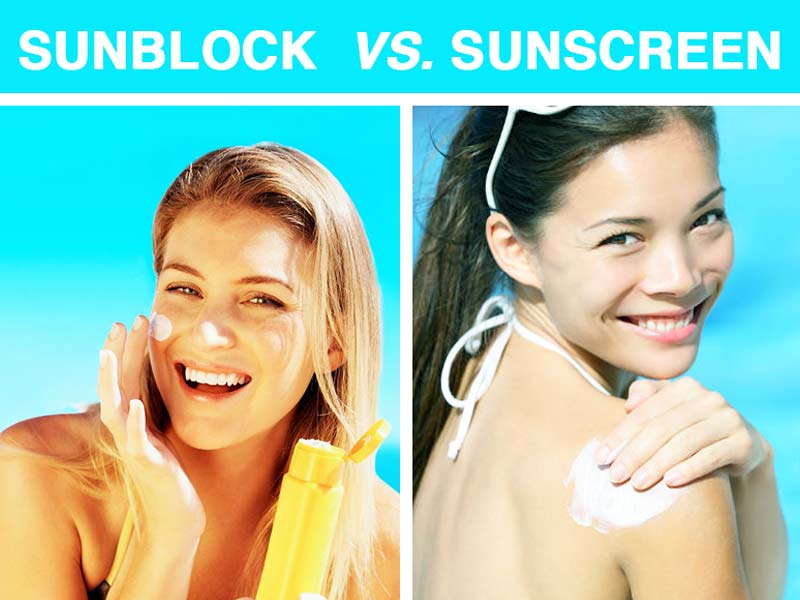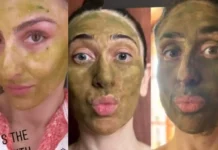What Is Sunscreen?
Sunscreen is a chemical barrier that absorbs UV radiation before it may harm the skin’s dermal layers. Avobenzone, oxybenzone, and para-aminobenzoic acid (PABA), chemicals intended to absorb the sun’s rays, are found in several sunscreens.
What Is Sunblock?
A physical defence against ultraviolet (UV) radiation is sunblock. As a barrier, it sits on the skin to protect against UV rays. Usually, zinc oxide or titanium oxide is found in sunblock. When applied to the skin, sunblock is frequently pacifying and apparent.

Should I apply sunblock or sunscreen?
Sunscreen and sunblock both offer defence against the sun’s rays. Be sure the sun cream you select is waterproof, broad-spectrum means UVA and UVB rays and has an SPF of 30 or higher.
Identifying our skin tone is the first thing we must know. Fairer skin is more likely to burn and tan, so it is advised to use sun protection with a higher SPF. Choosing the proper brand, texture, and spectrum coverage will benefit from it.
You can choose sunscreen instead of sunblock if most of your activities have been indoors. Additionally, it will be useful when you need to apply makeup. If most of it is outdoors, go with sunblock.
Also Check: 5 Celeb-Approved Products to Get Summer Ready Skin
However, your skin type should be taken into consideration when choosing sun protection for you. Avoid products that include fragrances, preservatives, and active chemicals oxybenzone or PABA, usually found in sunscreen, if you have skin that is acne prone.
If you have sensitive skin, Sun protection that contains zinc oxide and titanium dioxide is good to use. These ingredients are typically used in children’s products since they need sun protection more than adults.
Sunscreen Vs Sunblock
When it comes to protecting against the sun’s damaging UV radiation, Sunscreen and sunblock both work well.
Sunscreen contains compounds that absorb UV radiation before they reach your skin, whereas sunblock functions as a barrier, shielding you from the rays.
You can see if sunscreen is simple to apply and doesn’t leave a white cast behind. Sunblocks, also known as physical blockers, do not work the same way their similar counterparts do.
The sun protection you chose must have active components that are safe for the reef. Since zinc oxide and titanium dioxide, which are active ingredients in sunblock, are also thought to be safer for the environment, sunblock is typically more effective. You could find sunblock more challenging or impossible to fully rub when using it. It alludes to a viscous mixture that will act as a vital physical barrier.
Although sunscreen completely disappears, sunblock usually leaves a white cast on the skin because it is not rubbed in. Sunscreen must be massaged into the skin to be absorbed, whereas sunblock functions as a physical barrier and may simply be applied.
Sunblock is more likely to cause blackheads the higher the SPF. However, some goods have taken things much further by developing a non-comedogenic cream.
Sunscreen is slightly transparent and does allow some radiation to reach the skin even though it blocks UVA, UVB, or both. Sunscreen also needs to be reapplied every few hours and given additional time to penetrate our pores but Sun Block is more stable and provides all the advantages of sunscreen without instability.
Conclusion
Your skin will only be protected by sunscreen or sunblock when applied correctly. No matter if you’re swimming in the open-air pool or playing on the beach, you always need a waterproof one.













